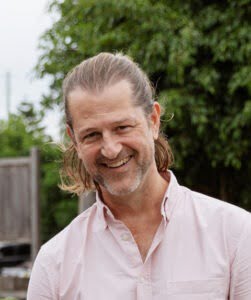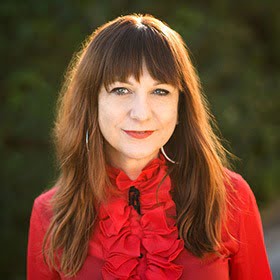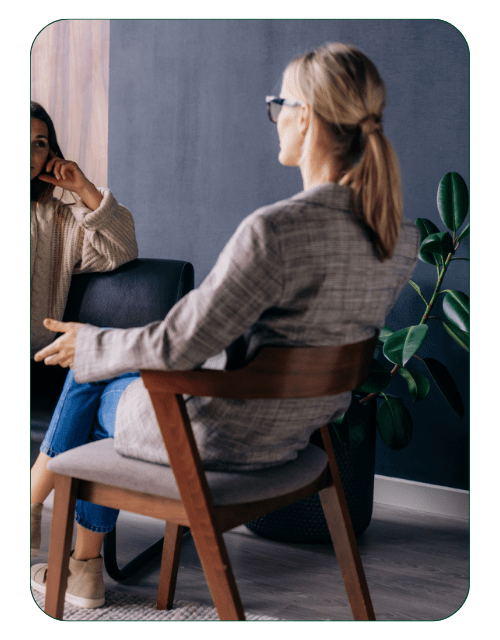Relationship & Marriage Counselling Brisbane
The Centre for Human Potential (CFHP) is committed to helping couples find their way back to a happier, healthier life together. We understand that your relationship or marriage is deeply personal – our counsellors will provide a compassionate and non-judgemental space for your to work through your concerns with professional support.
Most relationships will face hardship or conflict at one point or another – that’s the nature of sharing your life with someone. Whatever hardship you may be facing, at CFHP, our qualified and accredited relationship psychologists work to help you move your relationship in the direction or rebuilding, restoring, and connecting.

Counselling Couples in Brisbane with Compassion
The aim of couples therapy will be to:
- Improve understanding and communication between the two of you
- Stop the “blame game” occurring within the relationship
- Work through unresolved issues and concerns
- Express your true feelings in a safe, supportive environment
- Speak to each other in a more supportive and understanding way
- Practice active listening and empathy towards one and other
Relationship counselling can help you recognise and challenge your current dynamics and provide you with the skills to break free, unleashing a more connected, rich relationship.
Common Issues Faced in Relationships
At CFHP, our relationship psychologists are well-versed in guiding couples in their journey to resolving a wide range of issues. Couples therapy can help with the following issues common in relationships:
Conflict/Arguments
No relationship is without conflict, but often, emotions can get the better of us. CFHP’s counsellors in Brisbane have proven experience helping couples work through issues together, peacefully.
Fertility Issues
Our relationship counsellors can help couples navigate the trauma and grief around infertility and move forward, strengthening their connection.
Infidelity
Affairs and breaches of trust and loyalty can cause great pain. CFHP can help couples process and heal from affairs and the resulting trauma and work together to rebuild the relationship.
Life Transitions
Different career paths and life choices often cause fear and concerns about commitment. The couples counsellors at CFHP can help you negotiate, manage, and come to terms with key life transitions affecting your relationship.
Parenting
Upon becoming parents, your lives become more complicated, and your marriage may suffer. Our psychologists utilise effective therapeutic methods to support parents and strengthen their relationship in the process.
Sex/intimacy Issues
Relationships aren’t all love and lust; they may come with intimacy issues. Our therapists can help you and your partner overcome intimacy issues and strengthen your emotional and physical connection.
Stress
Managing stress is often overwhelming, especially if you take on the problems of your significant other. Our counsellors can help you strike the balance to improve your mental health and that of your relationship.
Trauma & Grief
Our counsellors can support couples suffering through trauma and grief, whether within or beyond the relationship.
Relationship counselling can help you and your partner understand each other, restore lost emotional and physical closeness, and strengthen your bond.
Confidential, Professional Relationship Counselling
Our Brisbane marriage and relationship counsellors won’t just provide you with short-term Band-Aid solutions to smooth over the edges; they will get to the root causes of your relationship trouble. By getting down to the source of your emotions and pinpointing what is really plaguing you deep down, we can start to determine solutions that will rectify your major, stubborn, unrelenting and overarching problems, as well as your day-to-day surface issues. Here’s how it works:
Voice Fears and Concerns: Our psychologists provide professional couple sessions in a comfortable, non-judgmental environment where you can voice your concerns honestly. By being open and honest about what is upsetting you and acknowledging your partner’s input and your own shortcomings, you can both work together to fix your relationship.
Renegotiate Commitments: Our couples counselling can assist you in voicing worries about commitment before working towards a clear and workable agreement and offering tools and methods to help you move forward in a completely safe and confidential environment.
Stamp out Negative Coping Mechanisms: If you suspect your coping mechanisms may be tied to your relationship problems, then counselling can help you get rid of these self-medicating solutions and remedy your relationship. If you feel they have become an addiction, we encourage you to engage in our addiction counselling services.
Positive Engagement = Positive Results: Couples therapy is suitable for all couples, married or not, heterosexual or homosexual, cohabiting or living separately — but it always has a greater chance of success when both partners are committed to the process and engage positively with the counselling.
Our Relationship Psychologists

Dr. Atholl Murray

Lisa Kunde

Paul Martin

Chaminga Dhanapala

Catering to All Couples & Relationships
The Centre for Human Potential staff have experience in supporting many types of couples through marriage and relationship counselling in Brisbane, including the following:
- Multi-Racial / Ethnic Couples
- Same-Sex Couples
- Bisexual / Transgender / Intersex partnered Couples
- Polyamorous Couples
- Straight Couples
We are here to help you improve your relationship through guidance and counselling in a safe and neutral environment. Whether you’re after individual counselling to cope with relationship issues or you’d like to seek couples therapy, we’re here to help.
Our Brisbane marriage and relationship counsellors won’t just provide you with short-term Band-Aid solutions to smooth over the edges; they will get to the root causes of your relationship trouble.
The Gottman Method
The Gottman Method is a unique, evidence-based therapy for couples that, according to the Relationship Institute, is the gold standard for successful couple recovery. Drs. John and Julie Gottman have spent over four decades researching what does and doesn’t work in relationships. They have observed over 3000 couples, some for up to 20 years, and they can, therefore, predict success with 90% accuracy. Gottman Method Couples Therapy was developed based on their observations of what is proven to work in creating happy relationships. It has been thoroughly tested on a variety of couple demographics, including Gay and Lesbian couples. Gottman Method is a process-oriented, phenomenological, cognitive, and emotionally based approach. It focuses on the three core areas of a relationship: maintaining intimacy and closeness, helpfully managing conflict, and creating shared purpose and meaning within the relationship.
The Gottman Method Involves Three Phases:
1. Assessment Phase
During the assessment process, you will be asked to complete a comprehensive online questionnaire. Although this may take some time, it will help your relationship therapist to understand each of your individual histories, your relationship dynamic and the challenges that have brought you to couples therapy.
It will take approximately six appointments to complete the Assessment Phase, which includes:
The first session, we begin by getting to know both of you, learning about your relationship, identifying your concerns and what you want to improve on, which is followed by several pages of assessment questionnaires that each individual must complete independently. The questions focus on your relationship, your history, your emotional well-being, etc. The therapist will then score these assessments, providing an insight into what areas need improvement.
A second session consists of two 50 minute individual sessions, in which each person explains their individual issues and history.
Third session is for treatment planning; during this session we discuss what the questionnaire scores indicate are the problem areas, and what we can do together to begin improving your relationship.
Summary
- 2 x 50 minute appointments during the initial assessment session.
- Each partner completes a comprehensive online assessment after the first appointment.
- 2 x 50 minute appointments for the second assessment session.
- 2 x 50 minute appointments for the third assessment session for treatment plan (work towards resolving the issues and supporting the relationship).
2. Focused Treatment Phase
The second phase involves focused treatment and can be delivered at a rate that suits you. Research evidence has established that couples make better progress with more frequent sessions in the early stages of therapy, which will be reduced progressively over time. Ideally, this will involve four or so fortnightly double sessions (100 minutes) before moving to single fortnightly sessions (50 minutes).
3. Relapse Prevention Phase
The third phase focuses on relapse prevention, with a reduction in the frequency of sessions to monthly for a few months before reducing to quarterly and bi-annual check-ins to ensure relapse prevention.
Speak with us
Get professional, compassionate, and confidential support from our leading team of relationship psychologists and marriage counsellors in Brisbane.
Frequently Asked Questions
How many sessions should we have?
That really depends on your relationship and what you wish to achieve with counselling sessions. It may take a number of sessions to begin making some real headway, as many couples may begin the process by simply venting.
Withheld emotions coming to a head is, of course, to be expected, but we would like to remind couples that you will get more out of your appointments if you approach the time with positivity, an open mind, and the humility to recognise that it takes two to make a relationship work.
Will couples counselling be impartial?
Yes. One of the main reasons partners may be reluctant to speak to a psychologist is the fear of judgement or worrying whether the counsellor will side with one person over another.
Your counsellor is here to act as a mediator between you and your partner and will provide an impartial and professional guide to the sessions.
Do we need couples counselling?
There’s no right or wrong time to see a relationship therapist. While some couples will see a psychologist after a major event or communication breakdown, many couples will also seek couples counselling prior to marriage or at any stage of their relationship to learn and use healthy communication skills.
The most common reasons that couples seek therapy include communication issues, major life transitions, intimacy and sexuality, anxiety and depression, anger management, infidelity, grief and loss, and regular arguments and conflict.
Couples counselling is most beneficial when both parties are ready to seek professional guidance together. While it can mend and restore broken down relationships, it’s important for both parties to be committed to making it work for counselling to be effective.
How does relationship therapy work?
At CFHP, we provide couples with a safe space to talk through any concerns about their relationship. Working as a couple can be tricky, and communication is an essential part of making a relationship great. Our therapists can guide you through methods to raise your communication and, therefore, your levels of respect and enjoyment in your partnership.
One of our seasoned, knowledgeable and compassionate relationship psychologists will sit down with you and your partner and listen to both parties’ concerns in an impartial manner. This will take place over a number of sessions, either in our Brisbane offices or through Zoom, which will steer and guide your relationship to greater strengths. Throughout this process, your Brisbane relationship counsellor will appraise and analyse you both to determine the underlying core relationship problems.
When you choose CFHP for couples therapy in Brisbane, our counsellors will put you at ease, explain the process, answer any questions you may have, and ensure you are given the tools to get your relationship back on track. Acknowledgement that your relationship is suffering and willingness to seek outside help to face the problems, coupled with the understanding that both you and your partner will have to do some hard yards, is the first step to bettering your relationship.
What if my partner doesn’t want to attend?
Ultimately, counselling will only be effective if you’re both actively choosing to participate. However, if your partner does not want to attend couples counselling, there are a few ways you can respond to them:
- Communicate openly with them – your partner may not be aware of the way you perceive your relationship, and telling them about how you feel or your struggles in the relationship can help to understand the need for couples counselling.
- Address their concerns – if your partner has reservations or fears about counselling, address them openly and honestly. Assure them that the goal of the therapy is to improve the relationship, not necessarily fix something that is wrong.
Ultimately, it’s important to respect your partner’s decision for not wanting to attend counselling with you. They may have their own reasons for doing so. You can still attend couples counselling on your own to work on your own personal growth and find strategies that can have a positive impact on your relationship.
Can therapy save our marriage/relationship?
Couples therapy is not a magic fix for any relationship. All parties must agree to put in the effort to want to improve the relationship, no matter how complicated the issues faced are. What couples counselling is, is a medium where partners can express their feelings and thoughts openly in a safe and mediated space in order to foster better understanding and ways of relating to one another.
